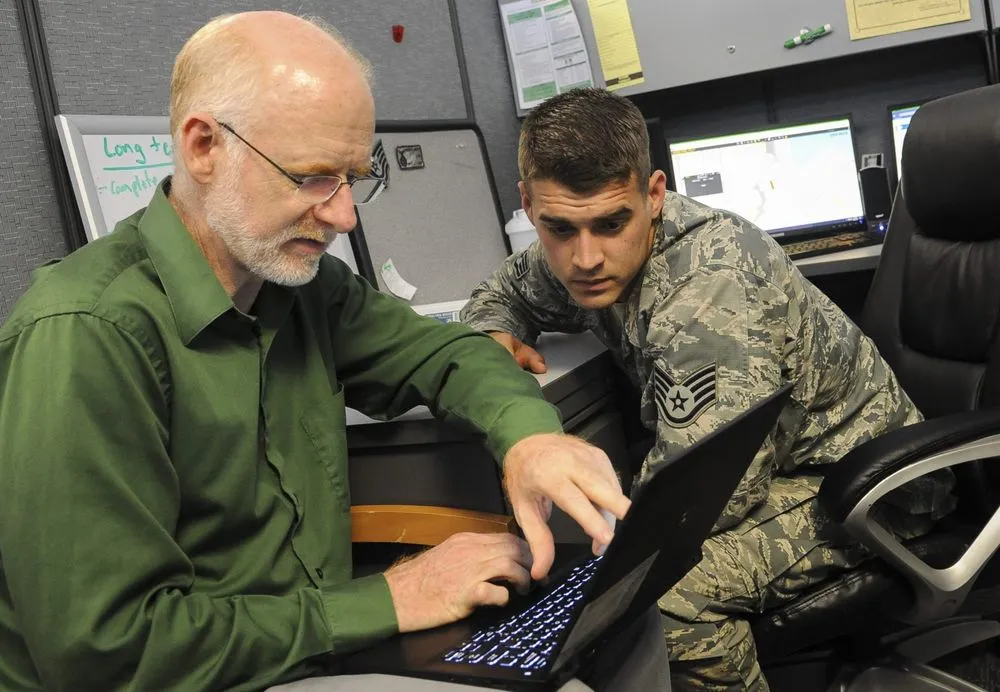From JEDI to DEOS: Why DEOS is Top DOD Cloud Deal
The DOD's JEDI Project has been awardedBy now, most of you have heard about the DOD's $10 billion JEDI project. The Joint Enterprise Defense Infrastructure Project (or JEDI) is the DOD's hyper-competitive contract aimed at creating a global, resilie...

UPDATE: The DOD’s JEDI Project has been awarded!
By now, most of you have heard about the DOD’s $10 billion JEDI project. The Joint Enterprise Defense Infrastructure Project (or JEDI) is the DOD’s hyper-competitive contract aimed at creating a “global, resilient, secure” cloud environment that “enables warfighters around the world.” So far, the drama has certainly been entertaining — if not overwhelming. Between Oracle and IBM filing protests against the DOD and Google dropping out due to internal conflicts, JEDI will almost certainly land in either Microsoft or Amazon’s lap.
One cloud company gets the contract — that’s it. Further, whoever scores JEDI is thought to be in a position to dominate the DOD’s cloud contracts. But, that’s not necessarily true. In fact, while JEDI is certainly a drama-filled boxing match between cloud-heavyweights over an incredibly lucrative (and complex) contract, it’s not the only DOD contract on the table.
In fact, JEDI only represents less than a quarter of the DODs government cloud needs. Beyond the news-dominating JEDI contract lies an equally lucrative, potentially more valuable DOD contract — the DEOS contract.
A Quick JEDI Brief
To understand ECAPS, and DEOS by association, we have to follow the JEDI contract. This should serve as a quick brief. Remember, a contract this complex takes a lot of unpacking, and this is by no means an exhaustive list of JEDI particulars.
- September 2017, DSD Patrick Shanahan released a memorandum calling for DOD-wide architecture called the Joint Enterprise Defense Infrastructure Cloud program (or JEDI).
- March 2018, the JEDI RFP was released calling for a “single-vendor” indefinite delivery and indefinite quantity (ID/IQ) contract for the JEDI project.
- July 2018, the bidding war for JEDI began with over 46 vendors throwing their hats into the ring. Analysts believe that the winner will be either Amazon, Microsoft, Oracle, IBM, or Google.
- August 2018, Oracle began a long, drawn-out campaign of loudly complaining about the project. This ultimately resulted in a protest over violated government procurement regulations (which Oracle swiftly lost,) meetings between Oracle and President Trump, and many accusations of dirty tactics from Oracle.
- October 2018, Google drops out of the race due to “internal conflicts” (a.k.a. their employees complained).
- October 2018, IBM tries to file a protest similar to Oracle’s (likely to get dismissed as well). Both of these suits were complaining about the single-vendor status and how it was unfair.
- April 2019, The Pentagon — likely tired of the drama — confirms that Microsoft and Amazon are the two finalists — as IBM and Oracle didn’t meet the requirements of the project. Also, the DOD confirms that it found “potential ethical violations” during the vendor selection, which almost certainly relate to Oracle’s handling of the entire project.
JEDI and DEOS
There are plenty of other details contained within this year-long battle royal among cloud giants. But, buried within the JEDI project itself and stemming from the vernacular of top DOD officials, there’s a more intricate, much more complicated cloud adoption program coming out of the DOD.
First, it’s important to understand that, despite the hype, JEDI is only going to account for 20% of the DOD’s cloud spending over the next 10 years. While the winner of JEDI will certainly be in a strong position to handle other projects, it’s not “winner-takes-all”. In fact, there’s another DOD contract coming up that’s possible more impactful than JEDI, but it’s hiding in the shadow of its drama-fueled partner.
Second, JEDI may actually be a winner-takes-one. Since JEDI is only a small piece of the DOD’s cloud plans (as per the Cloud First Policy), winning JEDI may mean that a vendor is locked into 20% of the pie. If the DOD chooses to diversify their offerings between vendors, the upcoming DEOS contract may be the key to DOD cloud penetration for vendors.
Of course, the DOD could select one partner for JEDI, DEOS, subsequent ECAPS projects, and all future projects. However, given the intensity of JEDI alone, the road to a single vendor would be fraught with legal battles.
Understanding the DEOS Contract
 The Defense Enterprise Office Solution (DEOS) is another DOD cloud contract that’s currently open for bidding. Like JEDI, the contract is massive in both scope and prize. Currently, the project is expected to receive $8 billion in contracts over 10 years. The DEOS aims to provide commercial offerings within the scope of DOD compliance. In other words, the DOD is looking for email, apps, file storage, messaging, and things of that nature. Or, to make things simpler, the DOD wants Office 365 with government security and compliance.
The Defense Enterprise Office Solution (DEOS) is another DOD cloud contract that’s currently open for bidding. Like JEDI, the contract is massive in both scope and prize. Currently, the project is expected to receive $8 billion in contracts over 10 years. The DEOS aims to provide commercial offerings within the scope of DOD compliance. In other words, the DOD is looking for email, apps, file storage, messaging, and things of that nature. Or, to make things simpler, the DOD wants Office 365 with government security and compliance.
Of course, Google also has some similar commercial offerings. But, given their history with government contracts, they’re likely out-of-the-race before it begins.
Here’s the interesting thing — Microsoft is the only real competition up for the contract. But, Microsoft is being smart about how they make their government cloud plays. The problem for Microsoft is that winning DEOS could mean sacrificing their JEDI bid. The thinking behind this is that the DOD won’t want to put all of their cloud eggs in one basket.
Microsoft’s Daniel Ives told Business Insider that Microsoft will be working with a third party vendor to deliver the solution instead of taking the contract for themselves. In other words, the DOD is likely to be using Office 365, but they’ll be getting the DEOS solution from a vendor — not straight from Microsoft itself.
But, despite the scope of DEOS — which rivals that of the JEDI project — it’s only phase 1 (or “capability set 1”) of the DOD’s 3-part plan called the Enterprise Collaboration and Productivity Services (ECAPS).
Understanding ECAPS
With ECAPS, the DOD seeks to “acquire and implement a secure, seamlessly integrated, commercial, cloud-based Software-as-a-Service (SaaS) offerings”. This will replace their legacy servers.
The official ECAPS document shows three capability sets.
Capability Set 1 (DEOS)
In Capability Set 1 (now known as DEOS,) the DOD seeks to gain cloud solutions for the following categories:
- Productivity suite: This would be word, spreadsheets, presentations, database management, drafting and diagramming, and project scheduling and tracking
- Messaging: This would be email, calendar, and contracts
- Content Management: This would be web portals, file sharing and storage, searching and exploring capabilities, and workflows.
- Collaboration: This would be IM, group chat, conferencing, native audio, native video, whiteboarding, and desktop sharing.
Capability Set 2
In Capability Set 2, the DOD seeks to gain cloud solutions for the following categories:
- Video: This includes assured C2 video, business video, video conferencing, and commercial video assets.
Capability Set 3
In Capability Set 3, the DOD seeks to gain cloud solutions for the following categories:
- Voice: This includes assured C2 voice, business voice, video conferencing, commercial voice access, residential voice, voicemail, and unified messaging.
Overall, ECAPS is a big piece of the DOD pie. In fact, we would easily argue that it will constitute a higher makeup of cloud assets than the JEDI project. Therefore, ECAPS may be the secret sauce that helps a cloud vendor win more DOD contracts. Thus, they can gain a significant foothold in DOD cloud architecture.
So, why do we think ECAPS is going to be more important than JEDI?
Due to the nature of ECAPS, winning the governments daily workflow SaaS solution is lucrative. Not only does it put you at an advantage when it comes to all agency solutions, but it gives the provider the assets to continue to build government cloud solutions in a broad sense. Plus, ECAPS is likely to constitute a higher percentage of DOD cloud spending. And, winning DEOS gives providers an advantage with Capability Set 2 & 3 due to configuration and data siloing issues.
Conclusion
While the JEDI contract may be dominating headlines, ECAPS and DEOS are likey the key to winning the DOD cloud war.
At Agile IT, we’re watching the DEOS contract carefully. Not only is Microsoft likely to win the contract, but that win may funnel more resources into their Office 365 government offerings. Which, in turn, lets us offer our government clients better solutions.
Agile IT is a one-stop source for government agencies and contractors. We are one of only 6 global AOS-G partners and can provide GCC and GCC high licensing and are also authorized to migrate and manage Azure Government Cloud instances. If you need the expanded security and compliance of the Government Cloud, Request A Quote:





